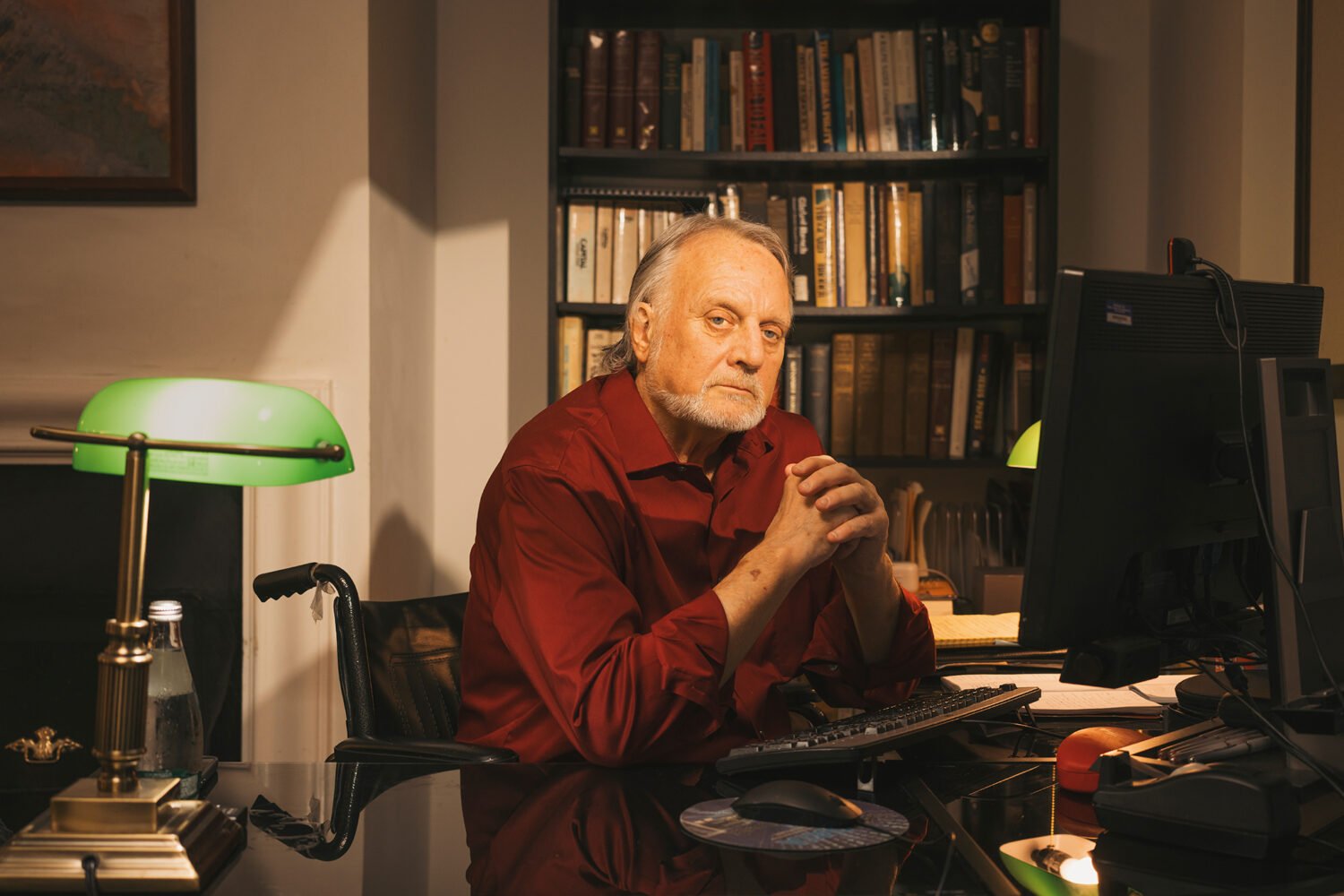Contents
- When do you start preparing for the show and how do you do it?
- What’s something about the job that others might find surprising?
- What does your Sunday look like?
- Do you have a relationship with the other Sunday-morning newswomen?
- What’s a moment when you really felt the impact of your work?
- What has been your greatest challenge?
- Who’s been the toughest interview subject you’ve had on your show?
- What advice do you have about managing stress when you spend so much time tuned into the news?
- What advice would you give women coming up in this field?
- Is there someone you’d really like to book who has continuously declined?
When do you start preparing for the show and how do you do it?
Kristen Welker: “Start? We never stop! After the show on Sunday, I immediately dive into bookings for the following week. Preparation for specific guests begins on Wednesdays, with strategy meetings; research; writing and rewriting questions; and mock interviews with my incredible team. Television is truly a team sport.”
Shannon Bream: “It requires you to have a bit of a crystal ball about what the big headlines will be several days later.”
Back to TopWhat’s something about the job that others might find surprising?
Bream: “That it’s often seven days a week. I have to bite my tongue when people say, ‘So you show up for one hour on Sunday? That sounds like a sweet gig.’ I love the work, enjoy the challenges, and assure you it’s much more than an hour a week.”
Martha Raddatz: “I don’t think people realize how many hours of work go into the Sunday shows.”
Back to TopWhat does your Sunday look like?
Welker: “I wake up at 3:30 am and head into the bureau. I read through the scripts while getting my hair and makeup done, [then] make edits to questions, practice on the teleprompter, and film early segments. From there, I talk to the Today show and affiliates—what we call crosstalks—to preview the show. Then it’s showtime.”
Margaret Brennan: “I wake up around 5 and try not to wake up my [family] as I make coffee and sneak out. We’re live at 10:30, [and] it is a sprint until we go off-air.”
Bream: “I’m up around 4 am communicating with the team about fresh news we need to work into the show. My husband calls 30 minutes before showtime and says a prayer that all the team’s efforts will pay off with an informative, intelligent show. After, I’m thinking about everything I could have done better, but it’s off to church, which puts it all in perspective.”
Dana Bash: “I try to get out the door by about 5:30 with my tea and toast. After the show, we huddle about what to push out on social media before I race out to invariably catch my son’s baseball game.”
Raddatz: “0430 alarm. I can’t sleep at all if I get up any later, because I worry that something will happen overnight and I won’t have time to prepare.”
Back to TopDo you have a relationship with the other Sunday-morning newswomen?
Bash: “When Kristen was named moderator of Meet the Press—the last of the Sunday shows to have a female host or cohost—the rest of [us] got together and sent her flowers to congratulate her and welcome her to the club. I have been friends with Kristen the longest, and we often send each other ‘attagirl’ texts about interviews we do. We also reach out to one another when the unwelcome noise gets loud. Before I co-moderated the 2024 presidential debate, Martha was kind enough to meet me for coffee to give me invaluable advice. I’ve gotten to know Shannon more recently, and every time we are together, I see how much we have in common—same for Margaret. What we do professionally is so specific and so unique—we are competitors, but we are also women who have a lot of respect for one another.”
Back to TopWhat’s a moment when you really felt the impact of your work?
Bash: “Evelyn Yang, the wife of Andrew Yang, trusted me with the horrendous story of being sexually assaulted by her ob-gyn while pregnant and told me there were many other victims but the doctor got a sweetheart deal and avoided prison. Her interview, followed by incredible reporting by the late Drew Griffin and our investigative team, led to a federal investigation, and the now former doctor is behind bars.”
Raddatz: “I have reported from war zones for decades, but one battle I wrote about was turned into a limited series on National Geographic [channel]. I know that recognition meant the world to the soldiers and families who were involved.”
Welker: “In February, I interviewed Ukrainian president Volodymyr Zelenskyy. He typically speaks to the media in Ukrainian, so I was shocked when he began our interview in English. He had a message for President Trump, Vice President Vance, and the American people, and he wanted to deliver it directly in their language. In that moment, I felt the impact of helping bring his message to the world.”
Back to TopWhat has been your greatest challenge?
Raddatz: “Managing work and family time. I tell our younger reporters who are parents that it is probably best not to promise you will ever be anywhere.”
Bash: “Separating fact from lies for our viewers and doing so in a measured but clear-eyed way. Breaking through with what is really going on and why it matters has never been more urgent for all of us.”
Back to TopWho’s been the toughest interview subject you’ve had on your show?
Welker: “I recently interviewed Russian foreign minister Sergey Lavrov for nearly an hour about the war in Ukraine. I knew he would dispute many of the facts I laid out, but my job as a journalist is to hold those in power accountable. My team and I did extensive research, so I had the evidence ready, and in the end I was able to make news while correcting the record when necessary.”
Back to TopWhat advice do you have about managing stress when you spend so much time tuned into the news?
Bash: “My teenage son puts all of that in perspective for me. I also have dogs. There is no better stress reliever than petting or playing with a puppy.”
Bream: “Find ways to connect with the people you love and regularly reestablish perspective, and take mental breaks. My faith is the bedrock of my life, so time in study and worship is critical for me. It reminds me that I’m not in charge of anything.”
Brennan: “Seeing my children’s faces reminds me the work we do on our democracy is for them. Practically, I work out, remind myself to breathe, try to avoid social media—and my husband has great taste in wine!”
Back to TopWhat advice would you give women coming up in this field?
Bream: “Keep pushing, pivoting until you find the space meant for you. With that in mind, take care of your personal relationships—your job isn’t going to love you back.”
Raddatz: “Do the work. I want young women to know this job is not about being on TV. It is about being a well-prepared journalist. Read, study, and get out there.”
Brennan: “My advice to all women is to know that your ability to listen to what someone is trying to communicate—not just what they’re saying—is a superpower.”
Back to TopIs there someone you’d really like to book who has continuously declined?
Bash: “Taylor Swift and Travis Kelce. I’m not giving up this dream. It’s a love story, so baby, just say yes?”
This article appears in the October 2025 issue of Washingtonian.




